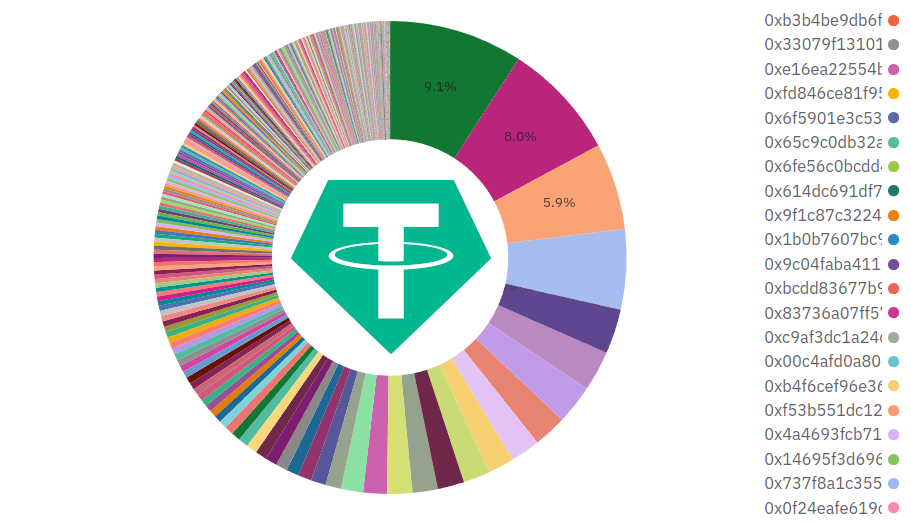Tether blocked more than $1 billion in USDT crypto wallets

Hash Telegraph's sources report that Tether is actively blacklisting wallets and blocking users from accessing USDT stablecoins.
Following the events of November 2017, when an unknown hacker stole more than $30 million in USDT stablecoins from a Tether Treasury wallet, the issuer of these stablecoins, Tether announced the release of a new version of its Omni Core software client capable of blocking assets and transactions from blacklisted cryptocurrency wallets.
In December 2023, Tether announced an updated blocking policy. From that time until now, the company has been actively blocking USDT holders' access to wallets on the U.S. sanctions watchlist (SDN). Enforcement is monitored by the Office of Foreign Assets Control (OFAC).
Tether said that this strategic decision is consistent with their unwavering commitment to maintain the highest standards of security for their global ecosystem and fosters an expanded close working relationship with global law enforcement and regulators.
According to Dune Analytics, there are now about 1,500 addresses on Tether's blacklist that hold approximately 1.1 billion USDT.
Hash Telegraph's sources believe that blocking USDT by the issuer violates the fundamental principles of decentralization and freedom of cryptocurrencies, effectively being an extrajudicial confiscation of funds. However, this cannot be fought, as Tether has absolute control over both the issuance and circulation of USDT stablecoins. And the authority is enshrined in the user agreement with the owners of cryptoassets.
The Terms of Service state that Tether may, in its sole discretion, seize your property and turn it over to any government, law enforcement or other authority when circumstances warrant.
Tether says these powers are necessary to comply with international anti-money laundering (AML) and counter-terrorist financing (CFT) standards.





Comments
Post a Comment
Feel free to leave comments, share your thoughts and experiences. Your opinion is very valuable to me. Comments help me to understand what I should work on to make the blog even more useful and interesting for you 👍️